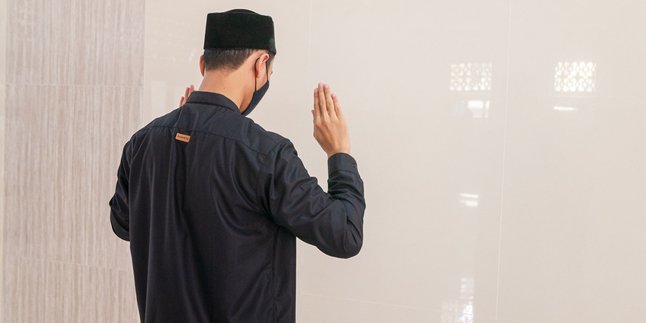Kapanlagi.com - Every Ramadan, a spirit of devotion envelops Muslims around the world as they perform various acts of worship, including the witir prayer, which is usually conducted after tarawih. However, one interesting aspect is the difference in the practice of reciting the qunut prayer during the witir prayer, especially towards the end of Ramadan.
Among Nahdlatul Ulama (NU) and followers of the Shafi'i school, the qunut prayer is recited with great solemnity from the 16th night of Ramadan until the conclusion of this holy month. On the other hand, Muhammadiyah holds a different view. This organization does not perform the qunut in the witir prayer, neither in the middle nor at the end of Ramadan. This decision is based on the fatwa of the Majelis Tarjih, which states that there is no sufficiently strong evidence to mandate or recommend the qunut witir specifically during the latter half of Ramadan.
So, what is the reasoning behind Muhammadiyah's decision? And what is the legal basis for it in Islam? In an interesting summary from Kapanlagi.com, we present an explanation regarding Muhammadiyah's perspective, the second largest Islamic organization in Indonesia, based on the tarjih fatwa and comparisons with the opinions of other scholars.
1. Differences of Opinion Among Scholars
In the debate surrounding the qunut prayer, it is interesting to note that the differences of opinion involve not only the Muhammadiyah community but also scholars from the Shafi'i school of thought. They consider that reciting qunut in the last rak'ah of the witir prayer is a recommended sunnah, especially in the second half of Ramadan, although there are some opinions that permit it throughout the holy month.
Imam Nawawi, in his book Al-Adzkar, emphasizes that "according to us, it is sunnah to perform Qunut at the end of witir in the second half of Ramadan," providing a strong basis for those who choose to perform qunut at that time.
Meanwhile, the Hanafi school holds that qunut is recommended in all voluntary prayers, adding diversity to this act of worship. All of this reflects the flexibility and diversity in the practice of qunut among Muslims.
2. Legal Basis of Qunut Witir in Islam
Qunut witir is a prayer recited in a standing position before or after bowing in the last rak'ah of the witir prayer. The hadith often used as the basis for reciting qunut witir is narrated by Hasan bin Ali:
"The Messenger of Allah (SAW) taught me several phrases that I say in the witir prayer: Allahummah dina fiman hadait, wa a’fina fiiman aafaita, wa tawallanâ fiiman tawallait…" (HR. Abu Dawud, An-Nasa’i, and At-Tirmidzi).
In several schools of thought, qunut in witir is recited throughout the year, while in the Shafi'i school, qunut is recommended only in the second half of Ramadan. The Hanafi and Hanbali schools hold that qunut witir may be recited at any time throughout the year, but it is not obligatory.
However, Muhammadiyah through the Majelis Tarjih has a different view that does not recommend qunut witir, either in the middle or at the end of Ramadan.
3. Fatwa of the Muhammadiyah Majelis Tarjih on Qunut Witir
According to the fatwa of the Muhammadiyah Tarjih Council, reciting qunut in the witir prayer does not have a strong basis in authentic hadiths. Therefore, there is no obligation or specific recommendation to practice it, whether in the latter half of Ramadan or outside of this holy month.
The decision of the Tarjih Council states:
"Reciting the qunut prayer in witir, whether at the end of Ramadan or in the middle, is not legislated. Therefore, there is no need for us to practice it."
This fatwa is based on research into various hadith narrations that mention qunut in witir, some of which are considered weak (dhaif). Therefore, Muhammadiyah chooses not to practice the qunut prayer in witir as a form of caution in worship.
4. Differences of Opinion with the Shafi'i School and NU
Muhammadiyah's view on qunut witir differs from the Shafi'i school and Nahdlatul Ulama (NU), which practice qunut witir in the latter half of Ramadan.
According to the book Ma’rifatus Sunan wal Atsar (4/44), Imam asy-Syafi'i mentions that qunut in witir during the latter half of Ramadan is a recommended sunnah, as practiced by some companions of the Prophet, such as Ibn Umar and Mu’adz al-Qari.
Imam An-Nawawi in the book Al-Adzkar also states:
"According to us, it is sunnah to perform Qunut at the end of witir in the latter half of Ramadan. However, the stronger opinion in our school is that qunut is only recommended in the latter half of Ramadan, not throughout the year."
Muhammadiyah, in this case, chooses not to practice qunut witir because it considers that there is no strong evidence specifically showing that the Prophet Muhammad (SAW) regularly performed qunut in witir during the latter half of Ramadan.
5. Is Qunut Witir Forbidden in Muhammadiyah?
Although Muhammadiyah does not practice qunut in witir, it does not mean that qunut witir is forbidden. The Tarjih Council only states that qunut witir does not have a strong legal basis to be practiced as part of the sunnah of the Prophet Muhammad SAW.
Ibnu Taimiyah in Majmu’ Al Fatawa (22:271) mentions that qunut witir is a prayer that is permissible in prayer, but it is not an obligation. He states:
"Whoever wishes to recite it, may do so. And those who are reluctant are also welcome to refrain. In the month of Ramadan, if someone recites qunut witir throughout the month, that is good. If one performs qunut in the second half of Ramadan, that is also good. If one does not perform qunut at all, that is also good."
This opinion aligns with Muhammadiyah's stance, which does not prohibit qunut witir but also does not consider it a recommended practice.
6. FAQ
What is the reason Muhammadiyah does not perform qunut in the witir prayer?
Muhammadiyah does not perform qunut in the witir prayer because the evidence is considered weak and disputed by hadith experts.
Is qunut in the witir prayer allowed in the Shafi'i school of thought?
Yes, in the Shafi'i school, qunut in the witir prayer is considered sunnah, especially in the last half of Ramadan.
What if the imam does not perform qunut during the Subuh prayer?
Even if the imam does not perform qunut, the congregation can still perform qunut because this is a sunnah ab'ad.
Is there any evidence for reciting qunut in the last half of Ramadan?
Yes, there is an athar from Umar Ibn Khattab indicating that qunut is recited in the last half of Ramadan.
(kpl/rmt)
Disclaimer: This translation from Bahasa Indonesia to English has been generated by Artificial Intelligence.












